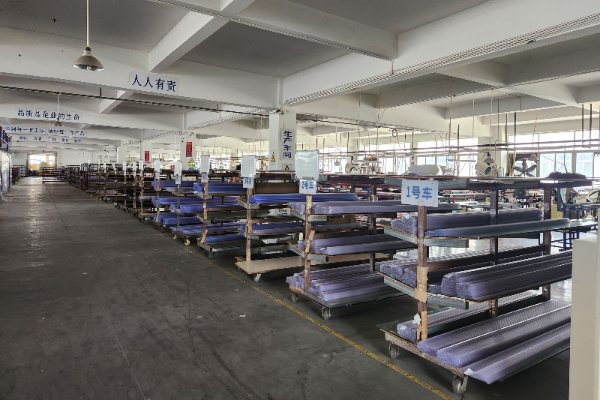Recent Posts
-
The Art of Crafting Shower Room Seal Strips: A Closer Look into the Production Process
Shower room seal strips play a crucial role in maintaining the functionality and durability of our bathrooms
07/01/2023
-
New materials to overturn tradition--TPE Stirps
Why TPE Seals Are the Superior Choice for Your Shower Enclosure: Durable, Eco-Friendly, and Long-Lasting!
09/06/2024
-
Explore TRIDENTSHOWER.COM: Your Ultimate Choice for Shower Enclosures and Hardware Accessories
Explore our range of innovative waterproof strips, magnetic strips, and premium products designed to enhance your bathroom experience. Enjoy exceptional customer service and affordable prices. Transform your bathroom into a beautiful and functional space with TRIDENTSHOWER.COM!
08/08/2024
New materials to overturn tradition--TPE Stirps
When selecting shower seals, TPE (Thermoplastic Elastomer) and PVC (Polyvinyl Chloride) are two commonly used materials. TPE, as a newer material, offers significant advantages over traditional PVC in terms of performance and environmental impact. Below is a comparison highlighting the superiority of TPE:
1. Flexibility and Elasticity
TPE Seals: TPE material has rubber-like elasticity, allowing it to quickly return to its original shape after being compressed or stretched. This ensures long-term tight sealing, providing better waterproof performance. Its flexibility also adapts to irregular surfaces, enhancing its sealing capabilities.
PVC Seals: PVC lacks elasticity and tends to become hard and brittle over time, which can compromise the waterproofing. As PVC ages, its sealing efficiency gradually diminishes.
2. Durability
TPE Seals: TPE is significantly more durable than PVC, with better resistance to wear, tear, and fatigue. It can maintain its functionality even after prolonged use. TPE is also less prone to aging or deformation, keeping its flexibility over time.
PVC Seals: PVC has poorer weather resistance, particularly when exposed to high temperatures or sunlight, where it tends to age, turn yellow, and become brittle, thereby reducing the seal's lifespan.
3. Environmental Friendliness
TPE Seals: TPE is an environmentally friendly material that is recyclable, non-toxic, odorless, and free from plasticizers, making it a safer choice for home use, especially in shower enclosures. It aligns with modern environmental and safety standards.
PVC Seals: PVC contains plasticizers and other chemical additives that may release harmful substances over time, posing potential risks to health and the environment. Additionally, PVC is less recyclable and harder to degrade, creating an environmental burden.
4. Processability
TPE Seals: TPE has excellent processability and can be easily molded into complex shapes through injection molding and extrusion. It is energy-efficient in production and easily colored, allowing for a wide range of design options and customization in seal colors.
PVC Seals: While PVC can be shaped, its processing is more complex and requires plasticizers and stabilizers, limiting its manufacturing versatility and offering fewer color choices.
5. Chemical Resistance
TPE Seals: TPE has good resistance to chemicals and will not degrade or lose its performance when exposed to common household cleaning agents.
PVC Seals: PVC can degrade or lose elasticity when exposed to certain chemicals, compromising the waterproof effectiveness of the seal.
Conclusion:
TPE Seals outperform traditional PVC seals in terms of elasticity, durability, environmental friendliness, and sealing performance, making them especially suited for long-term use and applications requiring a higher level of sealing in shower enclosures.
While PVC may be more affordable, TPE seals offer better overall value in terms of long-term cost, environmental sustainability, and user experience.
This comparison highlights how TPE seals are becoming the preferred choice in premium home installations and environmentally conscious product markets.









